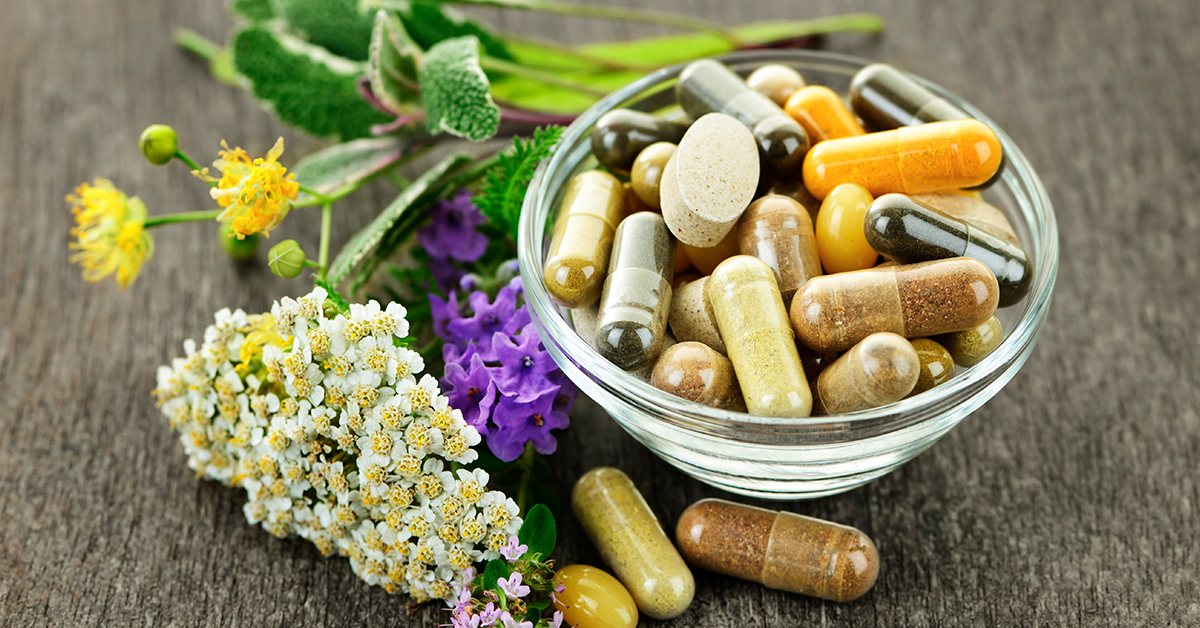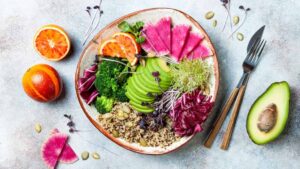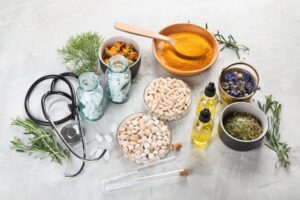Natural healing therapies can bolster immunity and aid your body’s self-healing mechanisms. Utilizing herbs as natural medicines to address symptoms rather than covering them up with medications, natural therapies often have less side effects.
Start small by adding more herbs to your diet or consulting with a naturopathic doctor for guidance regarding herbal remedies and holistic treatments.
1. Chamomile
Chamomile (Asteraceae) is an aromatic flowering herb from the daisy family with apple-shaped blossoms, ideal for making herbal tea. Chamomile has long been used to ease anxiety, insomnia and digestive ailments as well as providing anti-inflammatory benefits.
Chamomile contains many powerful plant compounds, including terpenoids (bisabolol and bisabolol oxides A and B) and flavonoids (such as apigenin). The volatile oil from chamomile flowers provides its medicinal benefits; its essential oil contains active constituents known for having antianxiety, antispasmodic, and antiseptic properties.
Chamomile can help with many ailments, from digestion to menstrual cramps and skin conditions like psoriasis. Furthermore, its sedating effects mimic that of prescription antianxiety drugs – making chamomile an ideal natural remedy for insomnia.
Additionally, turmeric can also be used to treat various digestive complaints, such as diarrhea and colic; hospitalized and postoperative patients often utilize its antioxidant properties to manage pain management; reduce inflammation; and slow the aging process.
2. Turmeric
Turmeric, the deep orange-yellow spice that has become an increasingly popular food trend, also holds powerful medicinal benefits. Long used in traditional medicine – Ayurveda practices from India have long incorporated turmeric as part of their holistic health approach, curcumin being one of its powerful antioxidants; curcumin’s color pigments may help the body combat oxidation that leads to chronic inflammation and age-related conditions like heart disease and diabetes.
Studies have demonstrated the anti-inflammatory and antioxidant properties of turmeric (Azuine and Bhide 1994). Turmeric has been found to reduce levels of oxidative stress in rats while inhibiting membrane lipid peroxidation; furthermore it possesses antiviral, antibacterial, and antimicrobial properties; it may even provide neuroprotective benefits in terms of reduced infarct volume and edema following cerebral ischemia (Dohare et al. 2008).
Turmeric can be used to treat various conditions, such as rheumatoid arthritis, fibromyalgia, chronic anterior uveitis conjunctivitis and skin cancers; urinary tract infections; smallpox, chicken pox and wounds; digestive disorders like loss of appetite, flatulence menstrual difficulties abdominal pain discomfort and hepatitis (Dixit and Jain 1988). Studies have demonstrated turmeric can be taken orally in supplement form or topically through creams or oils; black pepper helps increase absorption by 2000%!
3. Peppermint
Peppermint (Mentha piperita) is a hybrid between spearmint and water mint (Spearmint). Available in its leaves, essential oil and extract forms, it provides many health benefits that include soothing upset stomachs, aiding digestion, relieving headaches and improving memory and concentration. Furthermore, peppermint may even reduce symptoms associated with seasonal allergies like runny noses and sneezing.
Peppermint can also help ease heart palpitations and respiratory conditions such as bronchitis, asthma and sinus congestion. It dries excess dampness from the lungs while expel mucus from them for effective expectorant action. Peppermint is also an extremely potent antibacterial that kills E coli, listeria and salmonella bacteria as well as prevent foodborne illness caused by Staphylococcus aureus bacteria that causes skin infections and pneumonia.
Peppermint oil’s cooling, mentholated properties can soothe itching from cold sores and other skin conditions, as well as reduce inflammation and soothe sore joints and muscles. Peppermint may even help alleviate symptoms of irritable bowel syndrome by decreasing spasms in the digestive tract.
Peppermint essential oil is one of the most versatile essential oils, offering aromatic or topical solutions for muscle aches, allergies, stomach issues and low energy. Make sure that before applying it directly to the skin it has been properly diluted; cut or open wounds must also be avoided before application; it is not advised for people with diabetes or hiatus hernia and could interfere with medications intended to lower stomach acid or treat high blood pressure.
4. Ginger
Ginger has long been used as an effective remedy for nausea, vomiting and pain due to its anti-inflammatory properties. Furthermore, ginger helps prevent the build-up of fatty plaques in arteries – something which could otherwise lead to heart disease and stroke – by controlling cholesterol and triglyceride levels with its antioxidant content.
Ginger’s anti-inflammatory and immunomodulating actions help strengthen the immune system to fight diseases. Ginger has also been proven to halt progression of colorectal cancer. Furthermore, studies have also demonstrated its ability to inhibit bacteria such as Campylobacter jejuni, Candida albicans, Escherichia coli, Helicobacter pylori, Listeria monocytogenes and Listeria monocytogenes growth. In healthy individuals it has also been shown to improve immunity function while thermoregulatory and thrombotic functions have also been investigated through clinical studies.
Herbal remedies can be prepared at home using powder form herbs that can be added directly into your daily diet for maximum benefits. Be sure to seek medical advice prior to adding herbal supplements into your lifestyle for safety purposes, though any potential health concerns should be discussed with healthcare providers beforehand. It’s essential to recognize that our bodies work as one system, so balancing it is key. The art and science of wellness lies in understanding our body’s ability to heal itself; realizing this power gives hope and motivation for taking charge of health and well-being!




